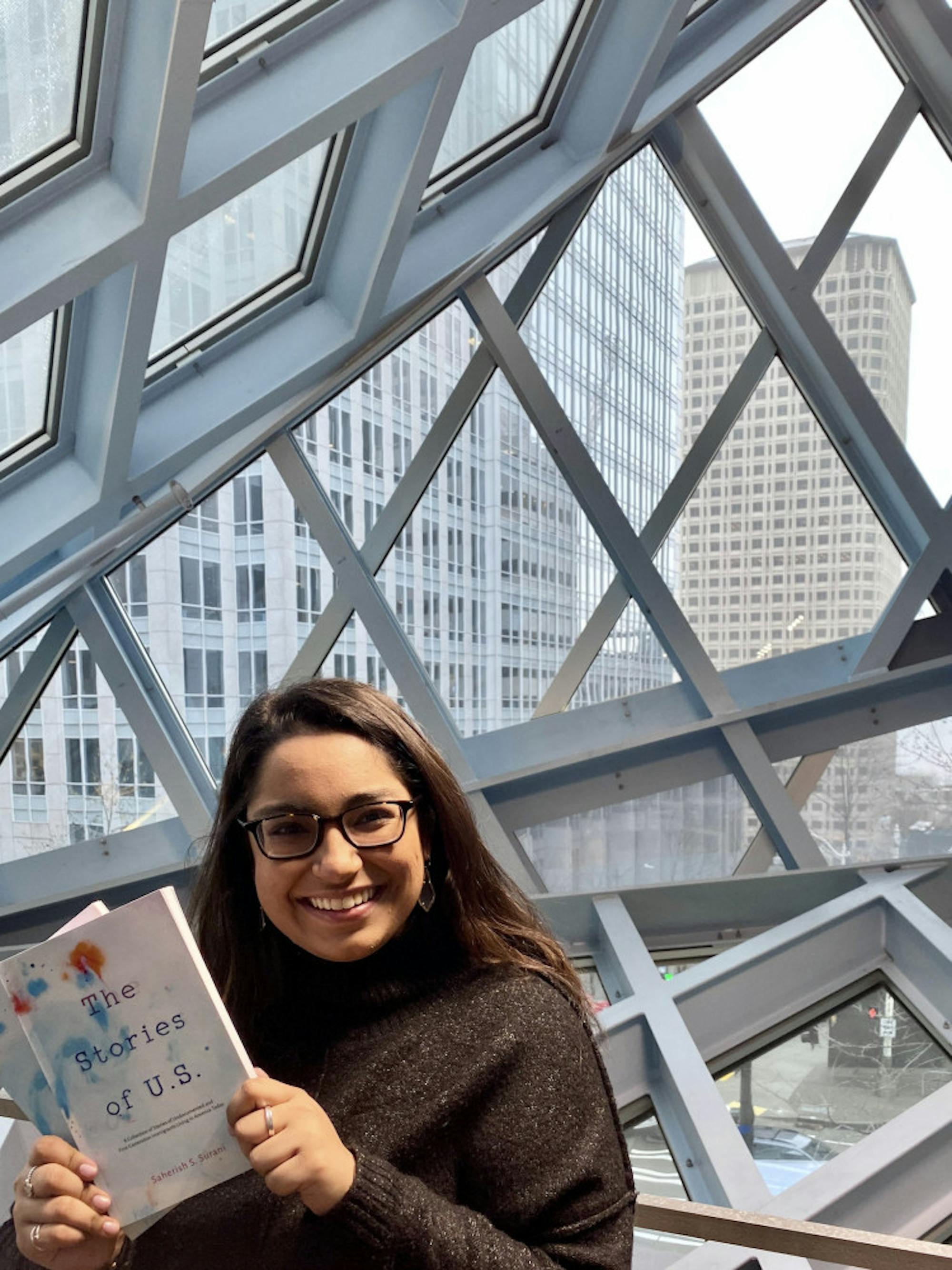Books are able to connect people and their stories from cultures to cultures. Student authors Saherish Surani and Sebastian Fernandez both utilized language and their books to speak to larger societal ideas and give voice to those issues.
Fernandez’s book, titled “Icarus” (2020), is a dystopian novel that takes place in a future devastated by climate change. All the people are living in cities encompassed by walls and a dome with fans that help to create breathable oxygen. The main character, a 16-year-old boy, sets out to find a mysterious man living outside of the city who he thinks is the key to solving and improving life for all the rejected people that live outside the city.
Even though English is not his first language, Fernandez first wrote the book in English before translating it to Spanish.
“Writing in English was interesting because it’s not my mother tongue, my primary language,” Fernandez, a first-year, said.
He did all of the work for the book except for the cover and wrote it in just three weeks. As he was brainstorming for the book, he had ideas about what he wanted for a character and tried to find a setting for the story that would really make an impact.
“What else could I do and what [would it] be like? What could be an impact to the audience?” Fernandez reflected. “And then I thought about climate change and [the] environment, which is something that … I really wanted to explore.”
Despite being a mechanical engineer, Fernandez wants to keep writing even as he progresses in his engineering degree.
“I think it’s just that if you have two interests that are different, that does not necessarily mean that you have to choose one instead of the other,” he said.
He self-published “Icarus” through Amazon. Surani, a senior, also published her book on Amazon, but her writing and publishing process took a slightly different route from Fernandez’s. She went through New Degree Press, which helped her through the publishing process of her book, “The Stories of U.S.” (2019).
“The Stories of U.S.” is a collection of short stories from undocumented and first-generation immigrants of all ages that Sakerish herself interviewed. She spent hours with each individual, hearing and listening to their story.
The idea of “The Stories of U.S.” came from an encounter with police in her hometown in South Texas. She had forgotten to put her headlights on while driving and realized how for someone that was undocumented, forgetting something so simple like that could bedetrimental. Though this happened in high school, she was still reflecting on it years later and realized she “wanted to provide a safe and a platform that gave undocumented and first-generation immigrants a way to get their stories out,” she said.
Surani said the hardest part of writing her book was doing justice to each person’s story. She navigated this by writing each chapter in a different format to better fit the person’s story she was telling.
“When I had these interviews with these individuals I tried to find a format that I felt kind of embodied their stories,” Surani said. Moreover, she worked collaboratively with the people she interviewed, sending drafts back and forth to make sure she captured their story in a way that they agreed and were comfortable with.
She never thought that she would write a book but already has a second edition out.
“I never thought that I would be in a position to have the time, the capacity, the energy or even the inspiration to undertake a project like this,” she said. “But especially through this project, I feel like I’ve learned so much … I’ve grown a lot from this process.”
Surani has no plans of writing another book anytime soon. However, Fernandez does plan to write another book but isn’t yet sure about what that story will be. Nonetheless, both authors have given time and energy to exploring and utilizing the written word to share stories, a powerful outlet that can connect people and speak to larger issues.
“I would recommend [those looking to write a book] to think about something that really interests them, that is worthy of their interest and think about what they want to accomplish with their writing,” Fernandez said. "It might take time, but in the end, it’ll be worth it."
Elizabeth Sander contributed reporting to this article.






